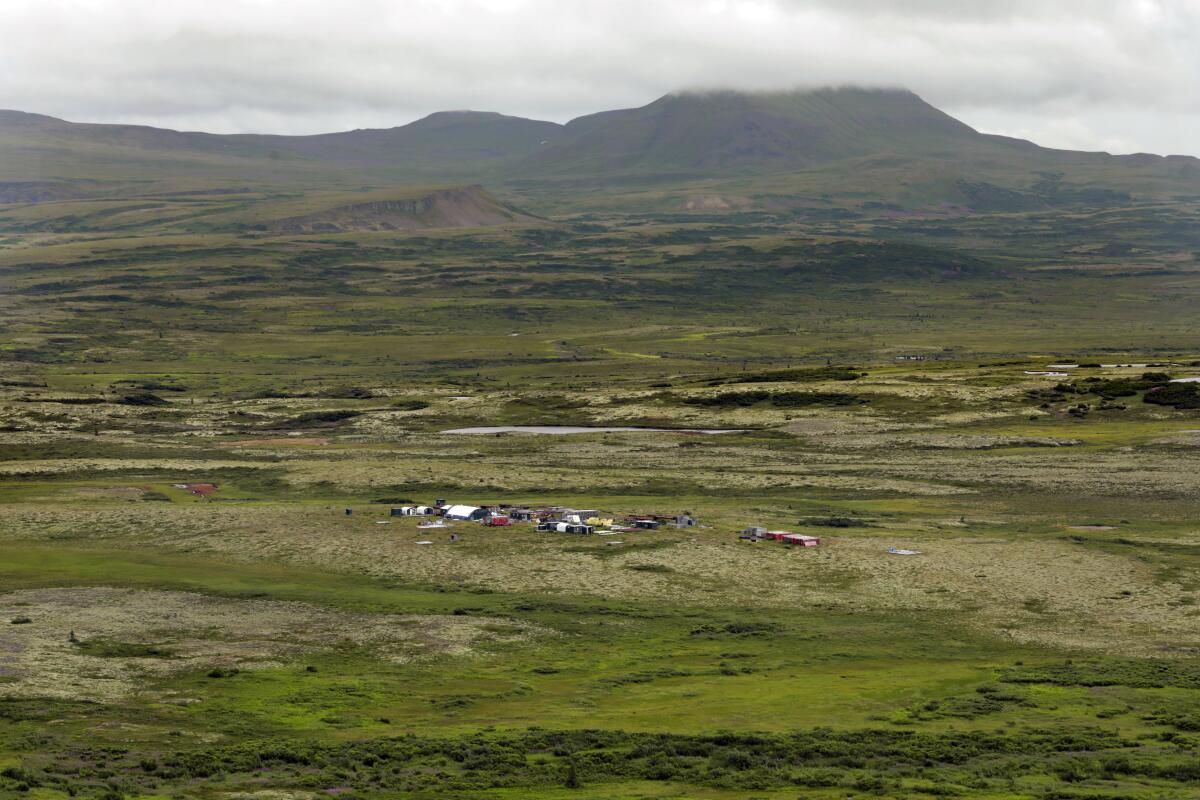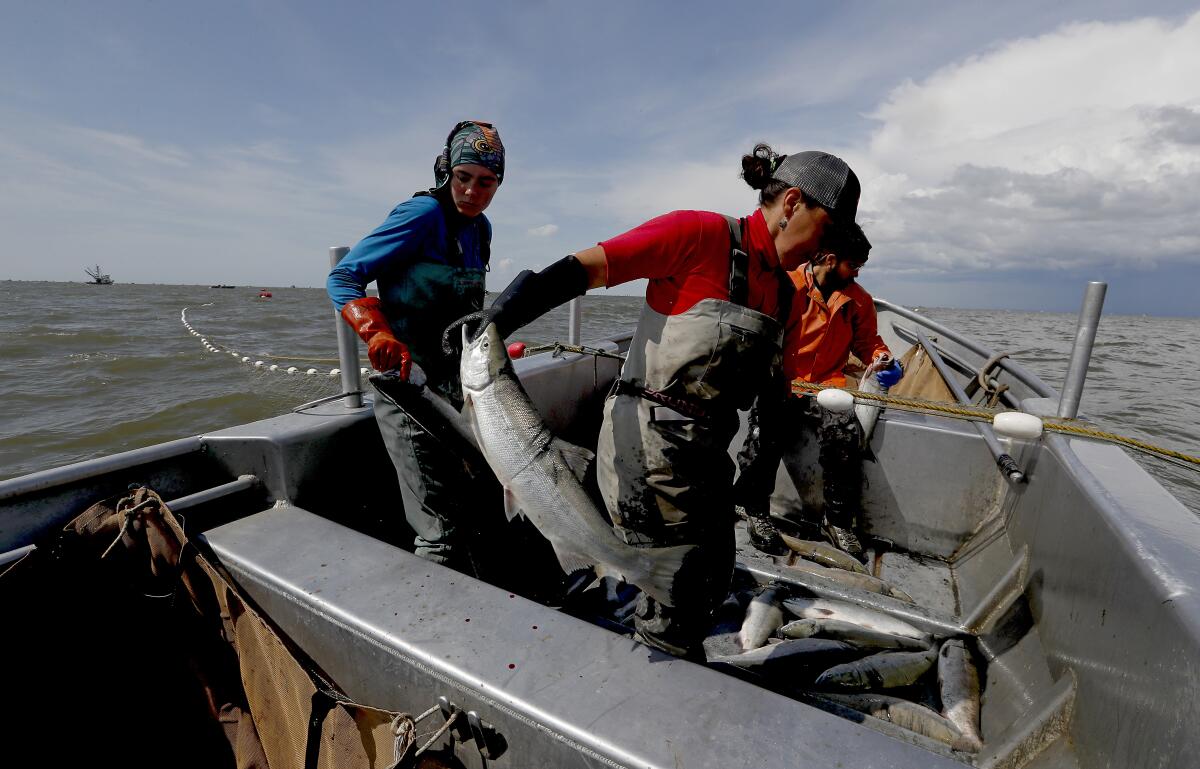EPA clears path for proposed copper and gold mine near Alaska’s Bristol Bay

- Share via
SEATTLE — Federal officials said Tuesday they would not block a proposed copper and gold mine near Alaska’s Bristol Bay despite objections by critics who contend it would imperil a fishery and harm wetlands and streams.
The U.S. Environmental Protection Agency outraged opponents of the Pebble Mine by announcing that it was withdrawing the agency’s option under the Clean Water Act to veto the project. The decision undoes Obama-era environmental restrictions, freeing the U.S. Army Corps of Engineers to decide whether to permit the controversial mine.
EPA officials in Washington appeared to overrule the agency’s Seattle branch, which spent years researching the potential environmental impact and taking public comments on a potential veto, and recently submitted a highly critical review of the mining proposal. The Clean Water Act gives regional EPA administrators authority to step in when they determine proposed projects would likely damage fisheries or wildlife habitat.
Chris Hladick, EPA regional administrator in Seattle, had found “weaknesses” in an Army Corps draft environmental impact statement, writing July 1 that it likely underestimated adverse impacts on water quality and fish resources. But Hladick, directed by a top EPA official last month to consider whether to withdraw the agency’s veto option, signed Tuesday’s notice doing so.
The agency’s decision throws a lifeline to Canada’s Northern Dynasty Minerals Ltd., which seeks permits to process 180,000 tons of ore a day for 20 years at the remote site 200 miles southwest of Anchorage. The mine would draw power from a 188-mile natural-gas pipeline to be built across Cook Inlet and Lake Iliamna, Alaska’s biggest lake. An ice-breaking ferry would carry ore across the lake, linked to 77 miles of new roads and a seaport.
Commercial fishermen say that no amount of production or local employment would justify risking contamination of Bristol Bay, where the salmon fishery supports 14,000 jobs and generates revenue of $1.5 billion a year.

“The EPA’s decision to ignore its own science and risk Bristol Bay’s entire fishing industry is pure politics,” fisherman Alexus Kwachka said in a statement released by Commercial Fishermen for Bristol Bay, a national coalition. “The Pebble permitting process has been hijacked by an administration that’s willing to cut corners and dismiss the appalling shortcomings and gaps in Pebble’s mine plan.”
Joel Reynolds, a senior attorney at the Natural Resources Defense Council, also said the EPA was abandoning its own scientific findings. “This outrageous move is the Trump administration’s gift to a foreign mining corporation at the expense of Bristol Bay’s fish, aquatic resources and community,” he said.
Northern Dynasty’s shares jumped 65% in New York on Tuesday’s news, which gives the company increased certainty as it tries to recruit investors to the project that major mining partners have abandoned over the years.
Tom Collier, chief executive officer of the company’s U.S. subsidiary, Pebble Limited Partnership, said a “preemptive veto” by the EPA would have circumvented proper consideration by the Army Corps, which is expected to decide next year whether to permit the project.
“Finally, this administration has reversed the outrageous federal government overreach inflicted on the state of Alaska by the Obama administration,” Collier said in a news release. He credited Alaska’s Republican Gov. Mike Dunleavy for encouraging the EPA to withdraw its option to kill the project.
More to Read
Sign up for Essential California
The most important California stories and recommendations in your inbox every morning.
You may occasionally receive promotional content from the Los Angeles Times.














